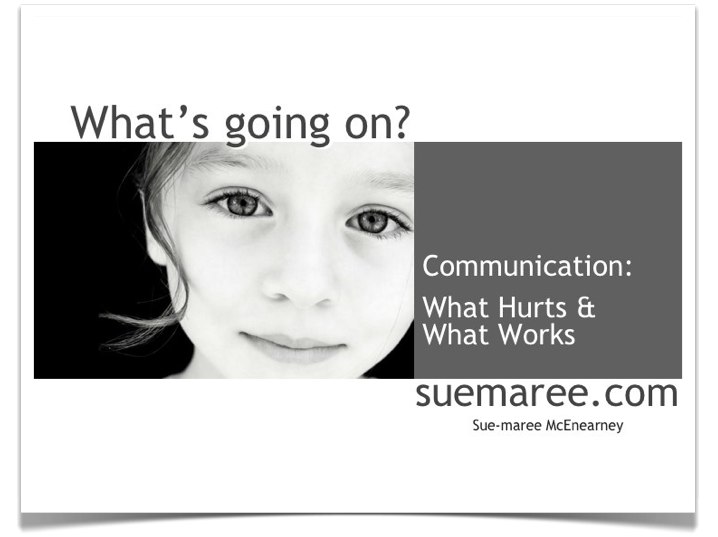Competition Culture
 Sunday, April 18, 2010 at 12:47PM
Sunday, April 18, 2010 at 12:47PM Even when it’s not our intention, we’re buying into the Competition Culture every time we take hierarchy positions in relation to others... when we...
Displace rights & responsibilities by;
- forcing our responsibilities on others
- taking others responsibilities from others
- abdicating our responsibilities to others
- accepting responsibilities from others.
Use cope strategies to;
- power play, and
- compliance caper.
And when it all gets too much, to;
- escape.
We end up punishing;
- others and/or
- ourselves.
Whether we’re dominating or submitting we’re operating on a ‘one-way’ basis;
Dominating - to force what we want for personal benefit;
Force
“I want what I want, and
I don’t care what you want!”
Submitting - to relinquish what we want for others benefit;
Relinquish
“It doesn’t matter what I want,
I’ll just do what you want!”
Sometimes, we’re just trying to protect ourselves;
- When our protections are harsh - others get hurt
- When our protections are flimsy - we get hurt.
It easy to see how we end up with conflict and alienation...
When what we really want is understanding and connection.
With so much at stake, why do people choose to get what they want by dominating with power plays? And give up what they want by submitting with compliance capers?
Why people dominate with power plays:
(a) They know exactly what they’re doing and they get off on the power trip
(b) They know they’re doing it and they think it makes them smart and confident
(c) They know they’re doing it and they want to stop but they don’t know what to do instead
(d) They make efforts to stop but in the heat of the moment they fall back on old habits
(e) They have no idea they’re doing it and when they find out they’re shocked.
Why people submit with compliance capers:
(a) They know exactly what they’re doing and they’re scared of the consequences if they don’t
(b) They know they’re doing it and they think it makes them ‘nice’ and a good person
(c) They know they’re doing it and they want to stop but they don’t know what to do instead
(d) They make efforts to stop but in the heat of the moment they fall back on old habits
(e) They have no idea they’re doing it and when they find out they’re shocked.
These situations can create pain and heartache for ourselves, and others - often for many years, and if we don’t do something about it - our whole life. They influence the work we do, the people we associate with, our health and happiness, and the quality of our relationships - especially with our partners and children.
Out Of The Frying Pan Into The Fire
When we recognize domination and submission in our behaviour, it’s normal to resolve to stop it. If we swing from one position to the other, we simply swap one set of issues for another - which only serves to get us out of the frying pan and into the fire.
- If we replace dominating with submitting, we end up feeling angry and resentful because we’re ‘acting like a doormat’ - letting people ‘walk all over us’ and ‘take advantage of us’ and we end up doing things we don’t want to do.
- If we replace submitting with dominating, we end up feeling guilty because we’re ‘acting like an ass’ - ‘walking all over other people’ and ‘taking advantage’ by manipulating or forcing them to do what we want.
help!
So What Do We Do?
How do we make our way in a competitive environment without competing?
The balance of the book explores how to do that...
Next... Cooperation Culture >>
Back to... Article List >>


